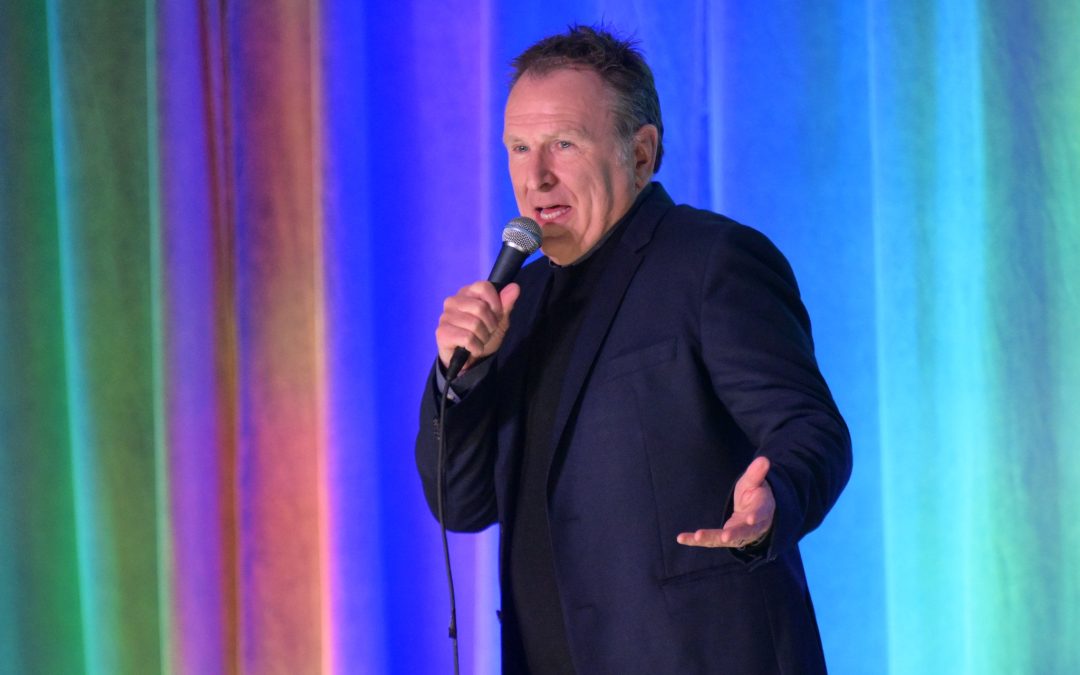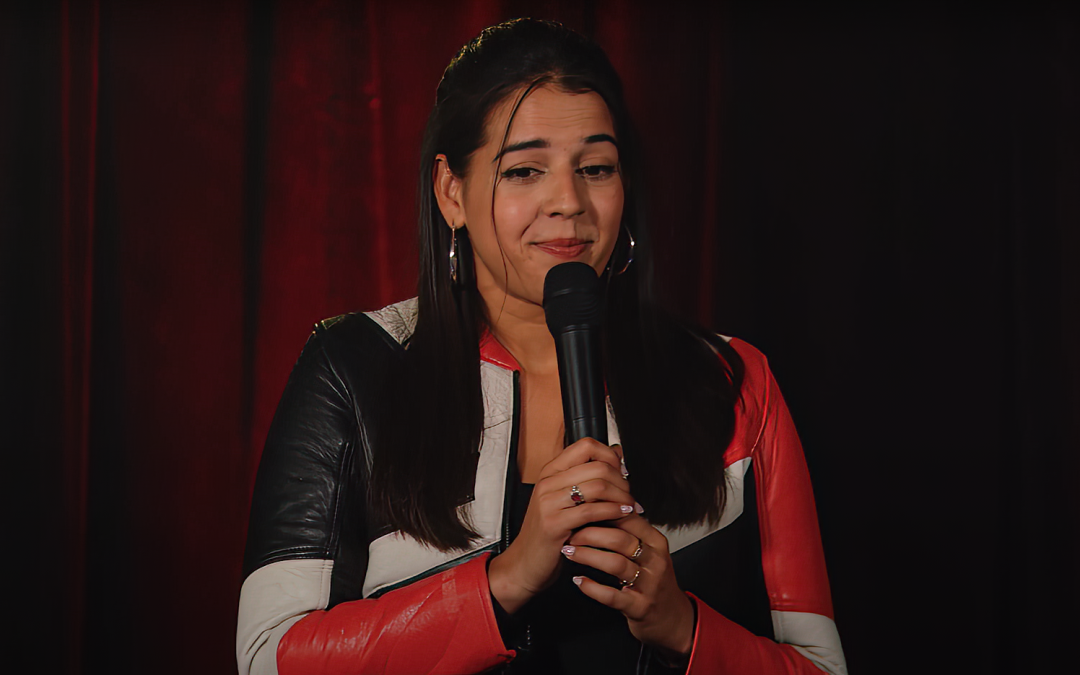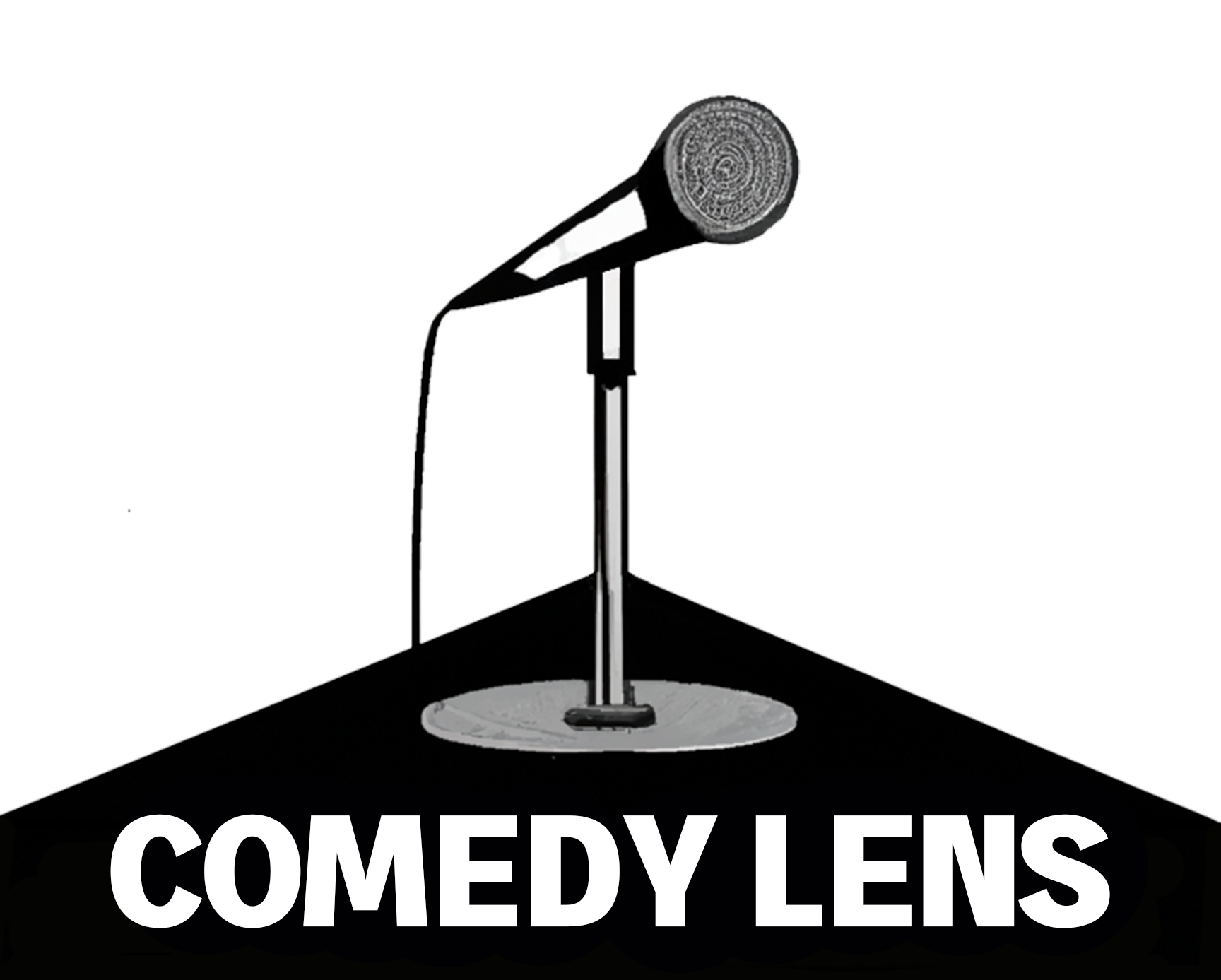Overcoming stage fright is an essential skill for any stand-up comedian, whether new to the industry or a seasoned veteran. We often think that stage fright is only experienced by those new to performing, but the truth is that even the most accomplished comedians can experience bouts of stage fright. Understanding what causes stage fright, as well as learning how to overcome it, can be a game-changer for your comedy career.
Stage fright cripples comedians, leading to a decrease in performance quality and affecting the delivery of their material. Pre-show techniques help mitigate some of the stress you may experience, while others might find that maintaining a positive mindset can better help them to manage their fears. Regardless of what works for you, acknowledging that stage fright is an incredibly common experience can be reassuring.
Key Takeaways
- Recognizing the causes of stage fright is crucial for overcoming it.
- Employing pre-show techniques and maintaining a positive mindset can help ease stage fright.
- Continual practice and experience will ultimately improve your ability to combat stage fright.
Understanding Stage Fright
Stage fright, a common challenge faced by comedians and performers alike, can leave you feeling overwhelmed with fear, anxiety, and nervousness when taking the stage. It’s vital to understand these emotions and learn how to overcome stage fright to deliver your best performance.
First, recognize that stage fright is a natural human reaction to a high-pressure situation. Your body’s fight or flight response kicks in, leading to physical symptoms like sweaty palms, shaky knees, and a racing heart. Acknowledging that stage fright is a normal experience helps you accept it as part of the performing process.
Practice plays an essential role in reducing stage fright. The more you rehearse your material, the more confident you’ll be in your delivery. Confidence can significantly lessen fear and anxiety. Additionally, practicing in front of supporting friends or family members can help you become familiar with the sensation of being in the spotlight.
Another crucial aspect is changing your focus from yourself to your audience. Instead of worrying about your potential mistakes or negative judgments, concentrate on creating a memorable experience for your spectators. Remember that they’re present to enjoy your performance and share laughter with you.
Lastly, don’t forget the power of positive thinking. Visualization techniques and self-affirmations can help calm your nerves and shift your mindset to a more confident state. Try picturing yourself on stage, delivering your jokes smoothly, and receiving a warm response from your audience.
By understanding the nature of stage fright and implementing these strategies, you can face your fears and turn them into fuel for your performance. Embrace the challenge, and remember that overcoming stage fright is a continuous process that will help you grow and excel as a comedian.
Pre-show Techniques
Before stepping on stage, it’s crucial to have a plan to tackle your stage fright. Start by embracing your nerves as a natural part of performing. Accept that it’s okay to feel anxious, and turn that energy into excitement and focus. Remember that even seasoned comedians experience stage fright, so you’re not alone in this journey.
One effective technique to calm your nerves is visualization. Close your eyes and imagine yourself performing your routine confidently and successfully, receiving laughter and applause from the audience. Picture the stage and surroundings, and let yourself feel the sense of accomplishment you’ll experience after a lively performance.
Breathing exercises are also essential in overcoming stage fright. As you prepare for your set, focus on your lower belly and ensure that it moves when you inhale and exhale. Proper breathing can prevent tension in your shoulders and keep you relaxed on stage.
Don’t underestimate the power of being prepared. Rehearse your material thoroughly, and familiarize yourself with the stage and its surroundings when possible. Knowing your material and being comfortable in your environment can significantly boost your confidence and help manage stage fright.
Lastly, consider connecting with fellow comedians or friends who understand the struggle of stage fright. Sharing your anxieties and encouraging one another can provide invaluable support, allowing you to face your fears and perform with confidence. So, enjoy the process of overcoming stage fright and embrace the rewarding journey of being a stand-up comedian.
Basic Techniques to Overcome Stage Fright
Breathing and Relaxation Techniques
Proper breathing is essential for managing stage fright. When you’re anxious, your breath tends to become shallow, which can increase tension and make it harder to think clearly. Focus on taking deep, slow breaths to calm your nerves and maintain a sense of control. Try the following exercises:
Deep Breathing
Deep breathing is a simple and effective way to calm your mind and reduce stress. To practice deep breathing, find a quiet place to sit or lie down. Close your eyes and take a deep breath through your nose, filling your lungs with air. Hold your breath for a few seconds, and then slowly exhale through your mouth. Repeat this process for several minutes, focusing on your breath and letting go of any tension or stress.
Diaphragmatic Breathing
Diaphragmatic breathing, also known as belly breathing, is a technique that helps you breathe more deeply and efficiently. To practice diaphragmatic breathing, place one hand on your chest and the other on your stomach. Take a deep breath through your nose, feeling your stomach expand as you inhale. Hold your breath for a few seconds, and then slowly exhale through your mouth, feeling your stomach deflate. Repeat this process for several minutes, focusing on your breath and relaxing your body.
Progressive Muscle Relaxation
Tense up specific muscle groups for a few seconds, then release the tension and feel the relaxation. Start from your head and work your way down to your toes.
Visualization and Preparation
Visualization is a powerful tool to help you overcome stage fright. Imagine yourself confidently standing on stage, delivering your material with ease, and making the audience laugh. Rehearse your performance in your mind, focusing on the positive emotions you want to elicit.
Preparation is key when it comes to reducing anxiety. Practice your material, making sure you’re comfortable with your jokes and timing. Know your content inside and out, and consider recording yourself to identify areas for improvement. Here are some additional tips:
- Rehearse in front of others: Perform your routine for friends or family members to build confidence and receive feedback.
- Familiarize yourself with the stage: If possible, visit the venue before your performance. Walk around the stage, test the microphone, and get a feel for the environment.
- Develop a pre-performance routine: Establish a consistent routine before each performance, such as stretching, listening to music, or repeating positive affirmations.
Remember, overcoming stage fright is a process, and it’s natural to feel nervous before a performance. By incorporating breathing and relaxation techniques, visualization, and thorough preparation, you’ll be well on your way to delivering a stand-up routine that leaves your audience in stitches.
Developing Confidence and Improving Performance
Writing and Rehearsing Comedy Material
To overcome stage fright and boost your confidence as a stand-up comedian, it’s crucial to focus on the foundation of your act: your comedy material. Begin by dedicating time to writing creative and engaging content. When working on your material, consider your target audience and tailor your jokes accordingly. This allows you to connect with the audience and feel more confident in your performance.
Rehearsal plays a significant role in improving your stage performance. Commit to practicing your material frequently, focusing on memorizing your lines and finding the right delivery style that suits your persona. Rehearsing in front of friends or recording yourself can help you get valuable feedback and make necessary adjustments to refine your act.
Mastering Delivery and Timing
Your delivery and timing can make or break your performance as a comedian. To master these skills, pay attention to the rhythm and pacing of your routine. Be aware of your tone of voice and body language, as these non-verbal cues can greatly impact the audience’s perception.
When practicing your delivery, experiment with different styles and pacing to see what works best for your material. Recording yourself and analyzing your performance can reveal areas for improvement and help you develop your unique, signature style. Remember, the more comfortable and natural you feel on stage, the more likely you are to overcome stage fright.
Utilizing Improvisation Skills
Improvisation is an essential skill for any stand-up comedian and can serve as a valuable tool to overcome stage fright. By developing your improvisation skills, you can navigate unexpected situations on stage, such as dealing with hecklers or forgetting your lines, with confidence and ease.
To improve your improvisation skills, enroll in classes or workshops, practice improv exercises at home, and look for opportunities to perform in improvised settings. Embracing these experiences will help you become more adaptable and comfortable on stage, ultimately enhancing your overall performance and reducing stage fright.
Remember, overcoming stage fright and building confidence as a stand-up comedian takes time, practice, and dedication. By investing in your writing, rehearsal, delivery, and improvisation skills, you are on the path to an engaging and successful stand-up comedy career.
Public Speaking Techniques and Tips
Free Training Resources
To overcome stage fright as a stand-up comedian, it’s important to familiarize yourself with public speaking techniques. Fortunately, there are numerous free resources available to improve your skills. Websites such as Creative Stand Up and the Genard Method provide insightful articles to help you feel more comfortable on stage.
In addition to articles, online video content such as this TED talk on overcoming stage fright can be useful for stand-up comedians who are visual learners.
When it comes to mastering the art of public speaking and stand-up comedy, remember that practice makes perfect. By leveraging free and paid resources, you can develop powerful techniques, refine your speech, and ultimately conquer your stage fright. Keep honing your skills, and the confidence you gain will captivate your audience’s full attention, making you a more successful and engaging comedian.
Gaining Experience and Building a Career
Performing at Comedy Clubs and Open Mics
To build a successful career as a stand-up comedian, you must start by gaining experience at comedy clubs and open mics. This will allow you to test out your material, hone your performance skills, and develop your stage presence. By regularly attending open mics, you’ll also be able to network with fellow comedians and mentors who can offer valuable advice and guidance on improving your act and overcoming stage fright.
Learning from Experienced Comedians
It’s essential to learn from experienced comedians in the industry. Keep an eye on their performances – how they captivate the audience, their joke delivery techniques, and how they handle anxiety and stage fright. Consider reaching out to seasoned comedians for guidance or mentorship. They can provide valuable insights into the world of stand-up comedy and help you refine your act. You can also watch stand-up comedy shows and study the comedic styles of various comedians to broaden your understanding and find the style that resonates with you.
Taking Acting and Stand-Up Comedy Courses
To enhance your skills and succeed in the competitive world of stand-up comedy, consider enrolling in acting and stand-up comedy courses. These courses can offer you useful techniques for projecting your voice, using body language effectively, and developing your unique stage persona. They can also help you shape your material, improve your joke writing ability, and present a polished, professional performance.
By participating in these courses, you’ll gain access to feedback from experienced teachers and peers, which can be invaluable in refining your act. Additionally, these courses can provide you with a safe space to practice and overcome any stage fright, ensuring you’re prepared and confident when you step out onto the stage.
As you continue to gain experience, learn from experienced comedians, and develop your skills through acting and stand-up comedy courses, you’ll be well on your way to building a successful career as a stand-up comedian. Remember to be persistent, creative, and open to new experiences, as this will help you grow and make your mark in the world of comedy.
Adopting a Positive Mindset for Success
Embarking on a career in stand-up comedy can be both challenging and rewarding. To achieve success and maintain your sense of humor throughout the journey, adopting a positive mindset is essential. The right attitude not only helps you overcome stage fright but also boosts your confidence, allowing you to fully grasp the opportunities that come your way.
First and foremost, set realistic goals to help you stay focused on your comedic career. It’s important to be honest with yourself about your abilities, strengths, and weaknesses. Acknowledge the areas that need improvement and celebrate the skills that come naturally to you. This will enable you to build a strong foundation for continuous growth and improvement in your stand-up comedy journey.
With your goals in place, prioritize self-care as it plays a crucial role in maintaining a positive mindset. Being a comedian might require late nights, long hours, and constant travel, which can eventually take a toll on your physical and emotional well-being. Make a conscious effort to practice healthy habits, such as regular exercise, proper nutrition, and adequate rest. By taking care of yourself, you can better communicate your creativity and humor to your audience.
Confidence is essential in the world of stand-up comedy. Embrace your unique comedic style and commit to it fully. Remember, confidence comes from embracing your authenticity and trusting your instincts on stage. As you step into the spotlight, remind yourself that you belong there and that your audience is eager to be entertained by your comedic genius. Embrace their laughter and remember that each performance is an opportunity to learn and grow.
A positive mindset also helps you develop resilience to cope with setbacks. As a comedian, not every performance will be a roaring success, and there may be times when you face rejection or harsh criticism. It’s important to view these experiences as learning opportunities and not let them define your worth as a performer. Seek constructive feedback, adjust your approach, and never lose sight of your long-term goal: to make people laugh and enjoy the ride on your way to success.
Final Thoughts on Overcoming Stage Fright
Overcoming stage fright is a challenge that many stand-up comedians face, especially in the early stages of their careers. As you step into the spotlight, conquer your stage fright by fully understanding its roots and incorporating practical techniques to address it. Remember to always breathe and remind yourself: the jitters you feel before stepping on stage are natural.
One crucial aspect of conquering stage fright is to be well-prepared. Know your routine inside and out, and don’t be afraid to rehearse it over and over again. The more familiar you are with your material, the more confident you’ll feel onstage. Also, as you gain experience performing in front of different audiences, the butterflies will slowly start to subside.
As a stand-up comedian, connecting with your audience is essential. Make eye contact, and listen to their laughter and reactions. Feed off of their energy, and remember that they’re there to have a good time – so have fun too! Embrace the unique aspects of your comedic style, and use your passion and authenticity to empower your performance.
Ultimately, the key to overcoming stage fright is to find your rhythm, trust in your abilities, and remember that no two performances are ever the same. Be kind to yourself, and don’t dwell on any mistakes or rough patches. Use each experience as a learning opportunity, and continue to grow as a comedian.
In conclusion, conquering stage fright is a journey that all stand-up comedians traverse. By understanding its roots and incorporating techniques like deep breathing and thorough preparation, you’ll build resilience and confidence that will ease your nerves. Keep honing your craft and embracing the thrill of performance, and before you know it, stage fright will become a passing sensation, making way for your true comedic talent.

Trae Crowder Releases New Comedy Special: ‘Trash Daddy’
Comedian Trae Crowder, known for his viral videos as the "Liberal Redneck," has once again taken the comedy world by storm with his sophomore stand-up special, Trash Daddy. Released on YouTube via 800 Pound Gorilla Media on March 13, 2025, this one-hour special...

Story Warz: The New Comedy Podcast of Deception and Detection
Looking for a fresh comedy podcast that will have you laughing and guessing? Story Warz combines the perfect mix of storytelling, comedy, and competitive gameplay. Hosted by renowned Legion of Skanks comedians Big Jay Oakerson and Luis J. Gomez, this innovative...

Adam Ray Release New Comedy Special: ‘Like And Subscribe’
Adam Ray returns with the release of his third comedy special, Like and Subscribe. A beloved figure in comedy circles, Ray has made a name for himself not just on stage and podcasts, but on the big screen as well, with impressive roles that showcase his dynamic...

Colin Quinn Releases New Comedy Special: ‘Our Time Is Up’
In the ever-shifting landscape of digital content, comedy has found a resilient platform on YouTube, and the latest to grace this arena is Colin Quinn with his comedy special, Our Time Is Up, released on May 6. Quinn, known for his sharp wit and unapologetic...

Casey Rocket Blasts Off as the New Regular on Kill Tony
In an exhilarating shake-up to the Kill Tony universe, fans of the live podcast were treated to a high-octane announcement: Casey Rocket has officially been named the newest regular, set to open the show with his inimitably eccentric comedy. Rocket is stepping in for...

Kim Congdon’s New Standup Comedy Special: ‘Childless Milf’
Kim Congdon, a standup comedian known for her unapologetic humor and lively stage presence, has released her debut comedy special, Childless Milf. This release marks a significant milestone in Congdon's career, offering her growing audience a 30-minute feature of her...

Trevor Wallace Releases His First Comedy Special: ‘Pterodactyl’
Trevor Wallace, known for his hilarious sketches and the Stiff Socks podcast, recently released his highly anticipated comedy special, Pterodactyl, exclusively on Amazon Prime. Wallace has gained impressive success in the world of stand-up comedy. With a distinct...
Related Articles
Trae Crowder Releases New Comedy Special: ‘Trash Daddy’
Comedian Trae Crowder, known for his viral videos as the "Liberal Redneck," has once again taken the comedy world by storm with his sophomore stand-up special, Trash Daddy. Released on YouTube via 800 Pound Gorilla Media on March 13, 2025, this one-hour special...
Adam Ray Release New Comedy Special: ‘Like And Subscribe’
Adam Ray returns with the release of his third comedy special, Like and Subscribe. A beloved figure in comedy circles, Ray has made a name for himself not just on stage and podcasts, but on the big screen as well, with impressive roles that showcase his dynamic...
Colin Quinn Releases New Comedy Special: ‘Our Time Is Up’
In the ever-shifting landscape of digital content, comedy has found a resilient platform on YouTube, and the latest to grace this arena is Colin Quinn with his comedy special, Our Time Is Up, released on May 6. Quinn, known for his sharp wit and unapologetic...



